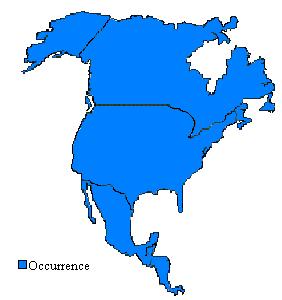

Go to the source as below if needed.
NOTE: Reference URL Newcastle Disease Info
NEWCASTLE DISEASE
Family: Paramyxoviridae
What is Newcastle
disease?
Exotic Newcastle disease is a contagious and fatal viral disease affecting all species of birds. Newcastle Disease is a Paramyxovirus disease of chickens, turkeys, wild and pet birds. Generally chickens are highly susceptible with turkeys and pigeons less so. Ducks and geese are resistant, with peafowl, guineafowl, pheasant, and quail exhibiting mild disease. The incubation period typically is 2-6 days (up to 15 days). In chickens, outbreaks may be so severe that almost all of the affected flock may dies within 72 hours without showing clinical signs. A death rate of almost 100 percent can occur in unvaccinated poultry flocks. Exotic Newcastle can infect and cause death even in vaccinated poultry. Pigeons can show mortality of up to 80%, while ducks and geese are usually less than 10%, although large die-offs have been report in the wild. Canaries generally show a mild disease with low mortality. Newcastle is probably one of the most infectious diseases of poultry in the world. Exotic Newcastle is so virulent that many birds die without showing any clinical signs.

Newcastle disease is present world wide but
pathogenic strains are exotic to Canada and the USA. Newcastle disease has been
reported in wild birds in Canada and the USA, and recently has been responsible
for Cormorant die-offs. The natural reservoir is wild and domesticated
birds.
What Are the Clinical
Signs?
Exotic Newcastle affects the respiratory, nervous, and digestive systems. The incubation period for the disease ranges from 2 to 15 days. An infected bird may exhibit the following signs:
Respiratory: sneezing, gasping for air, nasal discharge, coughing
Digestive: greenish, watery diarrhea
Nervous: depression, muscular tremors, drooping wings, twisting of head and neck, circling, complete paralysis
Partial to complete drop in egg production and thin-shelled eggs
Swelling of the tissues around the eyes and in the neck

Increased death loss in a flock.
How is Newcastle disease
transmitted?
The disease is transmitted through infected birds'
droppings and secretions from the nose, mouth, and eyes. Transmission is by
inhalation of infectious aerosols. Intensive conditions favour spread by
contact, on inanimate objects and airborne between poultry houses. Human
infections occur mainly amongst laboratory workers and those who work with
infected chickens or who give live vaccine, especially by aerosol. The exotic
Newcastle virus can survive for several weeks in a warm and humid environment on
birds' feathers, manure, and other materials. It can survive indefinitely in
frozen material. However, the virus is destroyed rapidly by dehydration and by
the ultraviolet rays in sunlight.
How Can Poultry Producers Help
Control and Prevent Exotic Newcastle?
The only way to eradicate exotic Newcastle from commercial poultry is by rapidly destroying all infected flocks and imposing strict quarantine and in-depth surveillance programs. Poultry producers should strengthen biosecurity practices to prevent the introduction of the disease to their flocks. Biosecurity is also important to protect backyard and hobby flocks. The following are tips on proper biosecurity practices:

- Provide clean clothing and disinfection facilities for employees.
- Clean and disinfect vehicles (including tires) entering and leaving the premises.
- Avoid visiting other poultry operations.
- Maintain an "all-in-all-out" philosophy of flock management with a single age flock.
- Control the movement of all poultry and poultry products from farm to farm.
- Do not "skim" mature birds from a flock for sale to a live-poultry market.
- Clean and disinfect poultry houses between each lot of birds.
- Do not keep pet birds on the farm. Do not hire employees who own pet birds.
- Exclude vaccination crews, catching crews, and other service personnel who may have been in contact with other poultry operations within 24 hours.
- Protect flocks from wild birds that may try to nest in poultry houses or feed with domesticated birds.
- Control movements associated with the disposal and handling of bird carcasses, litter, and manure.
- Take diseased birds to a diagnostic laboratory
for examination. Keep dead birds in a refrigerator and ship them on wet ice to a
diagnostic laboratory for virus isolation.
What symptoms are present on
humans?
Humans can be infected with Newcastle disease
virus, with headache, flu-like symptoms and mild conjunctivitis (4-7 days)
rarely becoming severe or leading to visual impairment. Usually symptoms are
confined to painful conjunctivitis lasting a few days, but fever and
influenza-like symptoms for up to 3 weeks may follow. Most infections are in
laboratory personnel.
How is Newcastle disease
diagnosed?
Infection by the Newcastle disease virus is
confirmed by virus isolation or ELISA.
How is Newcastle disease
treated?
Newcastle disease is treated symptomatically.
There is no specific treatment for the viral disease.
References
United States department of agriculture